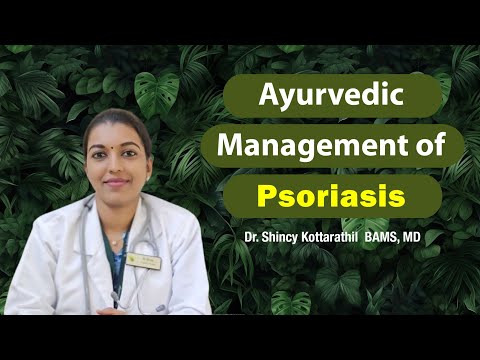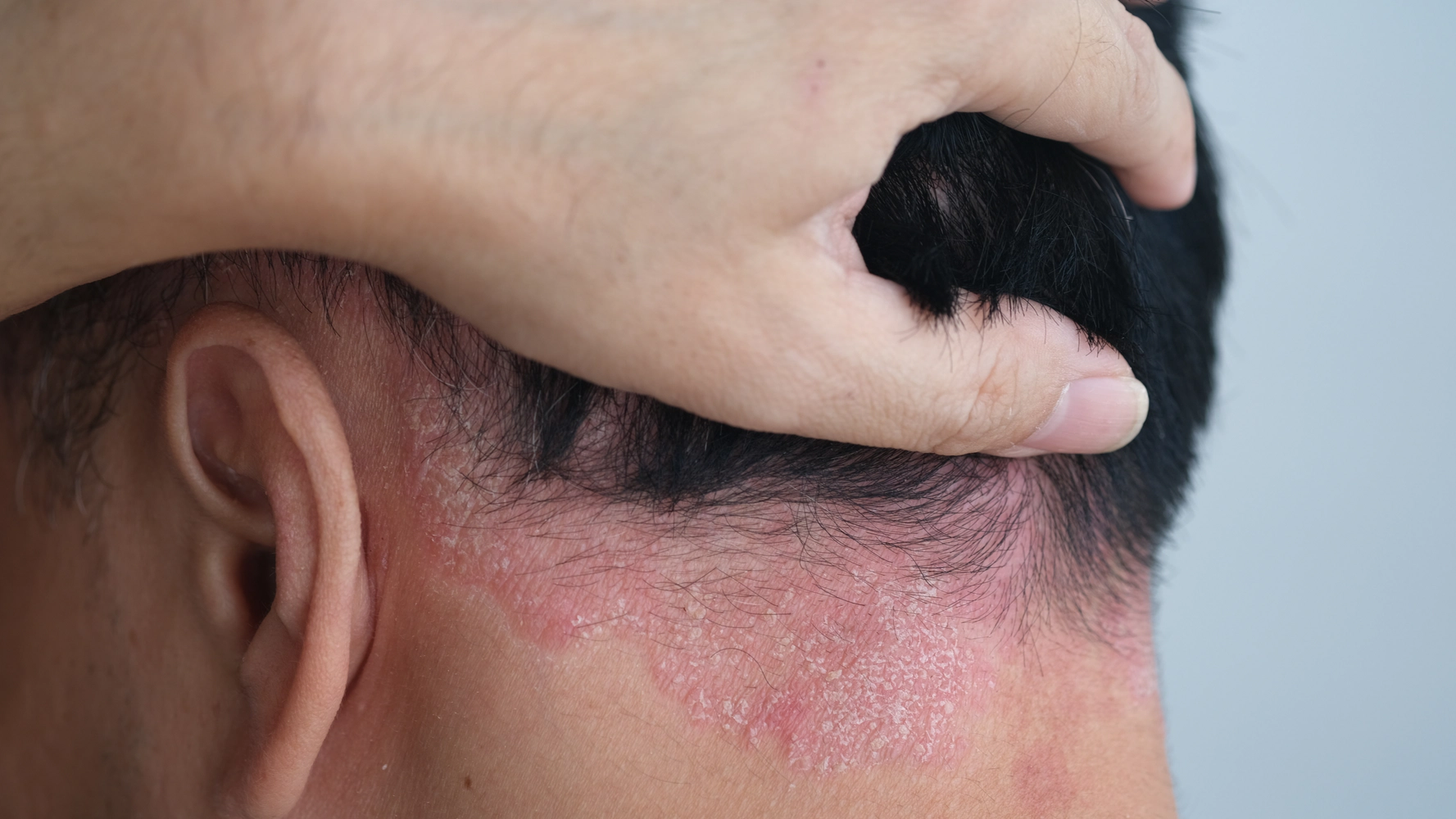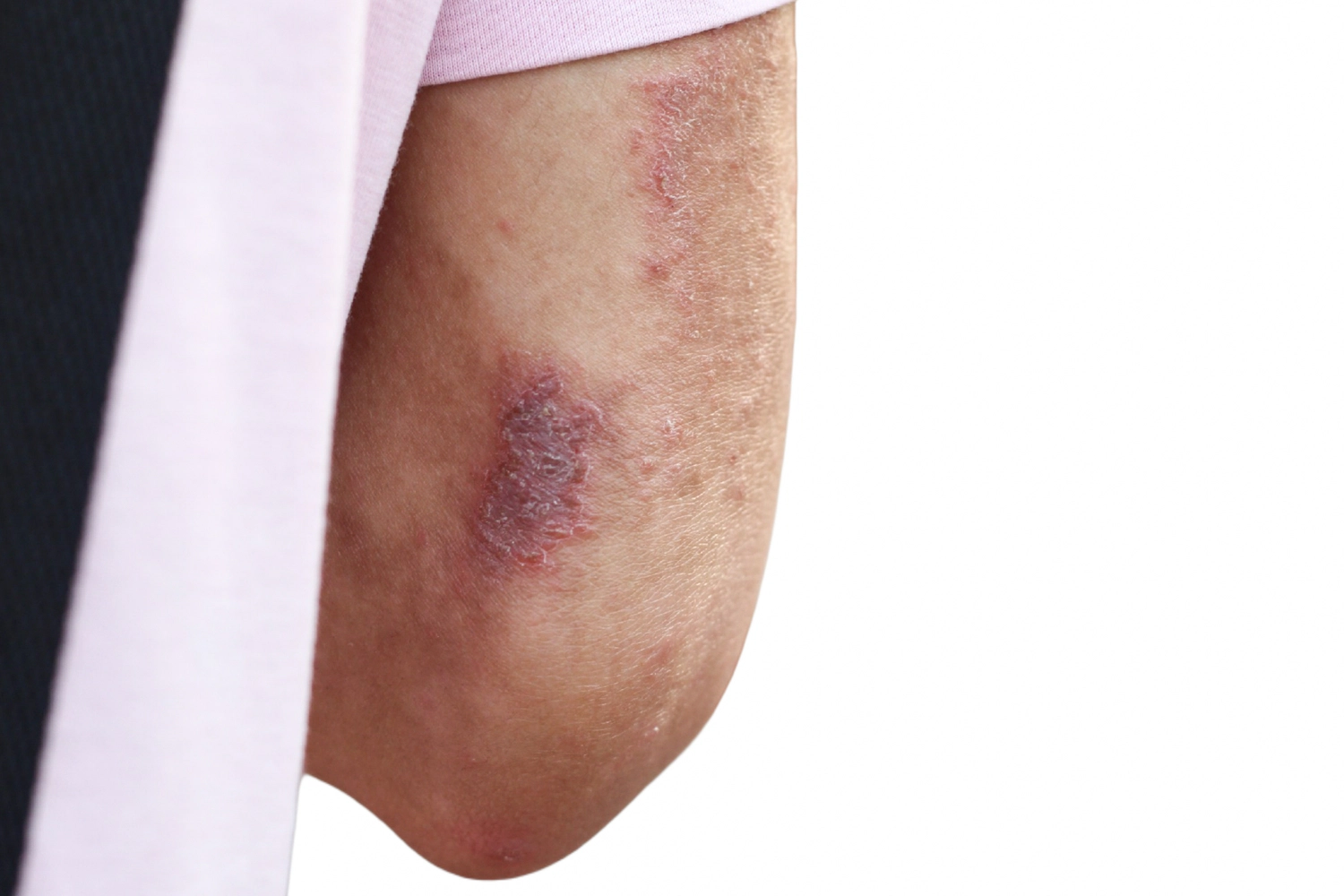
What is Psoriasis?
Psoriasis is a skin condition that results in inflammation due to an autoimmune response. Psoriasis is characterised by thick, discoloured patches of skin that are covered with scales. The thick, scaly areas are referred to as plaques. Flare-ups of psoriasis, a chronic skin condition, can occur without warning. In Ayurveda, it is believed that the primary cause of Psoriasis is the excess of Vata and Kapha doshas in the body. The Ayurvedic treatment for Psoriasis in Kerala aims to remove excess Vata and Kapha doshas from the body.

Promoting natural healing for Psoriasis with Ayurveda
According to Ayurveda, Psoriasis occurs when there is an imbalance of Vata and Kapha doshas in the body. When the doshas change, toxins build up and contaminate deeper tissues, leading to the development of symptoms. Natural substances, herbal medicines, and oils are utilised in Ayurvedic treatment for psoriasis in Kerala. Ayurvedic remedies have no side effects as they are composed of natural substances. Moreover, the focus of the treatment is on completely eradicating the disease, rather than providing a temporary solution to the ailment.
Feel free to contact us for your queries regarding Ayurvedic treatment for Psoriasis in Kerala.
At Ayur Bethaniya Ayurveda Hospital, our approach is to determine the root cause of skin conditions and develop personalised treatment plans accordingly. By understanding the cause, the doctor can exclude other complications associated with the symptoms. Each patient receives a personalised treatment plan that involves purifying the blood and rejuvenating deep-layer tissues. By flushing out toxins and restoring digestion, the accumulation of further toxins is prevented.
By using herbal decoctions, snehapana, and herbal oils, the symptoms are reduced and the body is cleansed. Applying herbal packs and oils on the skin eliminates red and itchy patches while taking medications internally helps detoxify the body. The treatment plan promotes complete healing of the skin by strengthening and toning the tissues.
To prevent toxin buildup and skin condition relapses, the doctor advises lifestyle changes in addition to treatment and decoction. This involves teaching the patient to avoid eating contradictory or harmful foods. The personalised diet plan is created based on the patient’s health condition, incorporating fibre-rich foods that detoxify the body’s systems.
Ayur Bethaniya provides tailored herbal treatment plans to address various skin conditions with safety and efficacy. Our comprehensive care and support for patients includes expert doctors and staff, as well as top-notch medical infrastructure and utilities. At Ayur Bethaniya, we guarantee the finest Ayurvedic treatment for psoriasis in Kerala.


